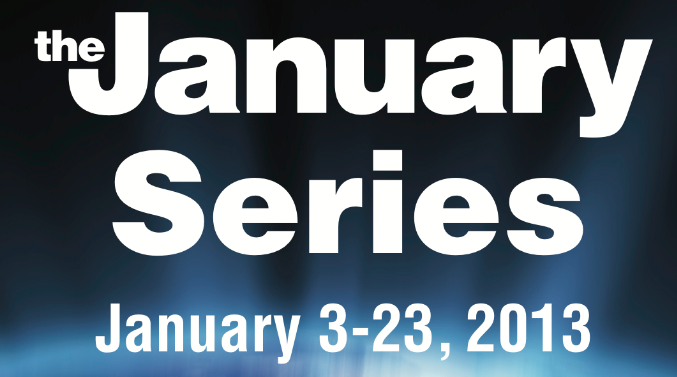The year 2012 was dubbed “Year of Interfaith Understanding” in many communities around West Michigan. Organized as the area’s response to the 10-year anniversary of 9/11, the year-long program focused on building friendship and the exchange of ideas among people of different faiths. The area has long been a hotspot of Protestantism, but with an influx of immigrants and refugees in recent years, many different religions have become commonplace in “G-Rusalem.”
That dialogue of interfaith understanding carried into the new year, gracing today’s January Series with two speakers renowned for their support and scholarship on religion. Richard Mouw is a prominent Christian theologian, current president of Fuller Theological Seminary and former Calvin College philosophy professor. Robert Millet is professor of ancient scripture at Brigham Young University and a well known Mormon apologist and author. The men have been friends for many years, and appear together at interfaith conversations around the country.
Today’s lecture, entitled “Evangelicals and Mormons: a Conversation and Dialogue,” heard each man speak on how he became involved with the interfaith dialogue, then left room for questions at the end. Both theologians answered these, building off of each other and often agreeing that they disagree.
This conversation was, to me, ultimately an uplifting one. I suspect that I speak for many people my age when I say that the bickering among religions in our world today is getting old. Is it really necessary to plant bombs based on who we believe is the true God? Must we continue to create laughable stereotypes of religions in the media? Does it truly matter what people wear on their heads or whether children do or do not pray at school? At risk of speaking for a generation, I would say that young people today are ready to cut the crap and begin moving toward fuller and friendlier understanding and cohabitation with those of different religions.
The question, then, is how we make that move. What does it really take to truly understand another religion?
One question an audience member asked of Mouw and Millet this afternoon was “What do Christians seem to have such fear of other religions?” Mouw responded that usually, people are afraid of compromising their own beliefs. They don’t want to negotiate, he said, and they don’t want to move too close to relativism. Believers often feel that if they try to understand or engage followers of religions, they risk compromising their personal values. While I agree with the truth of Mouw’s answer, I don’t think it’s a valid reason for fear. The first step to truly understanding another religion is willingness to hear it out. Simply listening to the tenets of another religion does not endanger one’s soul. It is not a moral compromise to seek knowledge. One does not become a relativist by accepting that other religions have positive aspects. If we can get past this initial fear of engaging other religions, we’re well on our way to understanding.
Mouw and Millet proposed many other principles for listening to other believers. It was encouraging to see two men of different faiths on stage, both preaching acceptance and giving the audience suggestions on how to act charitably toward other religions. They presented so many princples that I can only record a few of my favorites here. Be sure to listen to the archived recording of the conversation if you missed the lecture.
First, we must avoid scoffing at the viability of other religions. Mouw, when he began studying Mormon-Evangelical conversations, decided not to entertain doubts about the truth of Joseph Smith’s (the founder of Mormonism) visions. He instead chose to accept Mormonism as a plausible religion.
Second, Mouw urges us to avoid a simple “doctrinal checklist.” The way to understand another religion is not to examine how closely it compares to your own. We cannot look at Islam and think, “They got the Abraham thing right, but the rest of it’s rubbish.” Looking for differences among religions leads only to more division, not more understanding.
Third, we must make certain that we have an accurate view of what the other side believes. Before we go making accusations or bringing up points of contention, we have to know what it really is the other religion preaches. In other words, do your research.
Finally, both men encouraged seekers of understanding to have healthy admiration for other religions. “Pay attention to piety,” said Mouw, reminding Christians that they are not always the top of the heap when it comes to dedication. Millet put it a bit differently. “Always have room for holy envy,” he said.




